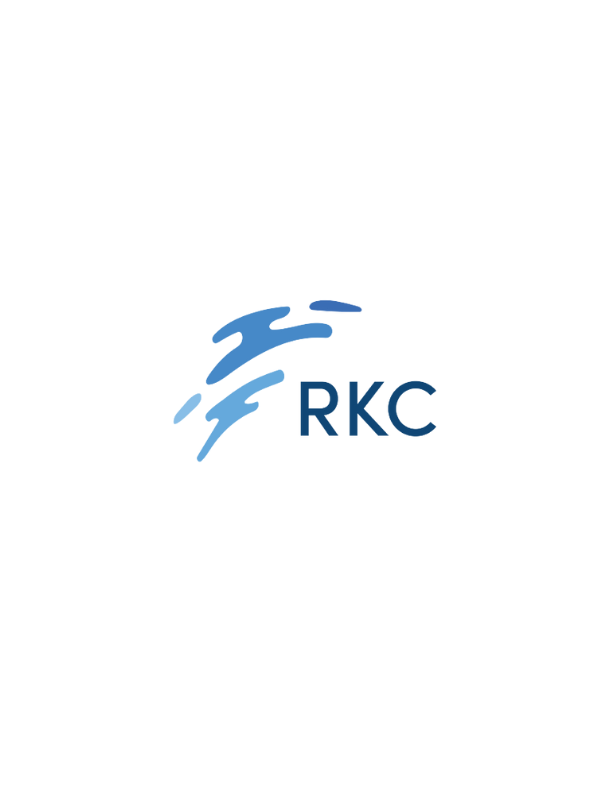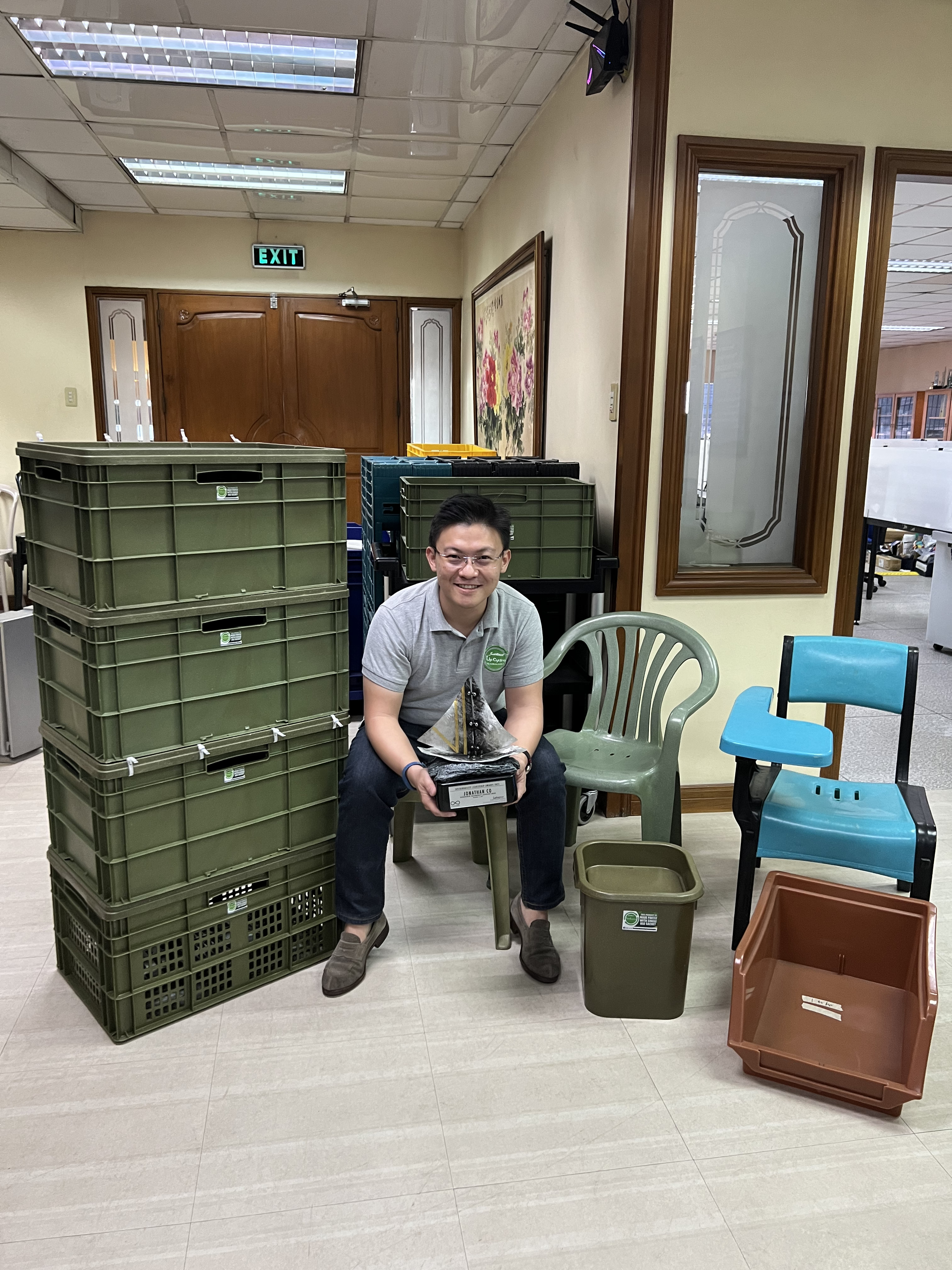

26 January 2022: ERIA's Regional Knowledge Centre for Marine Plastic Debris (the Centre), together with the United Nations Development Programme (UNDP) Indonesia, held an online talk on Rainy Days: High Season for Marine Plastic Litter? It was part of the Sustainable Development Goals (SDG) talk series by UNDP Indonesia to facilitate discussion of the issue and shed light on innovative and practical solutions proposed and carried out by the youth in Indonesia to overcome the marine plastic problem.
Heavy rain, especially during the rainy season, accelerates the amount of plastic leakage and generates the accumulation of plastic in the oceans, not only causing annual floods, but also having long term harmful effects on the marine ecosystem.
Mr Suryo Tomi, UNDP Indonesia Head of Communications, in his opening remarks cited the ever-increasing production and consumption of plastics as one of the reasons behind the generation of huge amounts of plastic waste. Mr Michikazu Kojima, ERIA Research Fellow, then spoke of the power of youth in leading the way for positive changes to tackle the issue, and welcomed this collaboration with UNDP as an opportunity to engage with the younger generation.
Dr Reza Cordova, researcher at Indonesia's National Research and Innovation Agency (BRIN), said the monitoring he has conducted in nine rivers in Jakarta Bay found there is a strict correlation between higher rain fall and a larger amount of waste going into the sea. During the rainy season, stretching from November to February, more waste is observed in the coastal areas. He underlined the importance of enforcing existing laws and regulations to accelerate efforts in mitigating marine plastics. Organic materials can be feasible alternatives to single-use plastics if the government and industry work collaboratively to cut the production cost and promote their application in many sectors.
Dr Reza underlined the problem with the current waste management system. He pointed out several areas in which it can be improved, including: the need to raise awareness encouraging household waste sorting and recycling; disclosure of effective recycling methods to encourage citizen participation (currently only 15% of citizens recycle, and 70% of those are disappointed with the results); increasing the efficiency of waste banks; and addressing the lack of funding in waste management (out of 519 cities in Indonesia, only five allocate more than 5% of their local budget for waste management – for the vast majority, the allocated budget is less than 3%).
Ms Dithi Sofia, Programme Manager at Indonesia’s Plastic Bag Diet Movement, encouraged stakeholders to lead by example. Her organisation is now supporting six governmental districts, including Jakarta, to develop regulations to prohibit single-use-plastic bags. Enforcing the ban on single-use plastics in traditional markets has been a challenge, and currently the compliance rate is 80% in Jakarta, but by involving role models among traders and buyers to take the lead and influence others, the movement is aiming at a 100% ban by 2025 in Jakarta.
A rise in internet shopping during the COVID-19 pandemic has also increased plastic packaging waste, she said, while at the household level, evaluating and managing our own waste (sending waste to the nearest waste banks through online transportation platforms) is key. Different places might have different needs, therefore, the solutions should accommodate each unique circumstance.
'It is not about true or false, it is all about consistency,' she said.
Ms Laura Seca Widyatmodjo, founder of Young Golfers for A Cause, said that her concern over plastic waste started when she observed a lot of plastics in the river near the golf course. She started by cleaning up the nearby coastline with like-minded people around her, but quickly realised that refusing to use single-use plastics is a more effective way of addressing the root cause of the issue. To create change, she said the young generation should start small, such as bringing their own bags to supermarkets or tumblers to coffee shops, and then gradually scale them up. Ms Laura hopes to inspire youth to have commitment and a positive mindset to make a difference, even though they are perceived as having no power because they are still young.
'Teenagers like to follow trends. If we can make environmentally conscious actions trendy on social media, we can create a whole movement,' she said.
Ms Livita Sumali, UNDP Indonesia Archipelagic and Island States Forum Representative, said marine plastic waste is first and foremost a transboundary problem, and while Indonesia is a marine plastic polluter, a large amount of plastic waste which ends up in Indonesia comes from the Pacific region.
She cited the United Kingdom as an example, having recently banned the use of disposable plastic cutlery after one million sea birds and other marine species are believed to have been harmed by plastic cutlery which ended up in the ocean. Similarly, the Philippines consumes 160 million plastic sachets every day due to their affordability. Given that 80% of waste is mismanaged in the Philippines, the plastic sachet is one of the major causes of pollution to the natural environment.
Ms Livita said that influencing people around you first is a powerful and simple action to make other people change their behaviour. In the context of reducing plastic waste, giving a unique gift that supports an eco-friendly lifestyle can be an option.
'Not only verbal examples, but practical examples could also be effective to change people’s behaviour,' she said.
At the end of the talk, it was noted that collective action is highly required to create change. Every single person can help reduce plastic waste based on their own capacity.
26 January 2022: ERIA's Regional Knowledge Centre for Marine Plastic Debris (the Centre), together with the United Nations Development Programme (UNDP) Indonesia, held an online talk on Rainy Days: High Season for Marine Plastic Litter? It was part of the Sustainable Development Goals (SDG) talk series by UNDP Indonesia to facilitate discussion of the issue and shed light on innovative and practical solutions proposed and carried out by the youth in Indonesia to overcome the marine plastic problem.
Heavy rain, especially during the rainy season, accelerates the amount of plastic leakage and generates the accumulation of plastic in the oceans, not only causing annual floods, but also having long term harmful effects on the marine ecosystem.
Mr Suryo Tomi, UNDP Indonesia Head of Communications, in his opening remarks cited the ever-increasing production and consumption of plastics as one of the reasons behind the generation of huge amounts of plastic waste. Mr Michikazu Kojima, ERIA Research Fellow, then spoke of the power of youth in leading the way for positive changes to tackle the issue, and welcomed this collaboration with UNDP as an opportunity to engage with the younger generation.
Dr Reza Cordova, researcher at Indonesia's National Research and Innovation Agency (BRIN), said the monitoring he has conducted in nine rivers in Jakarta Bay found there is a strict correlation between higher rain fall and a larger amount of waste going into the sea. During the rainy season, stretching from November to February, more waste is observed in the coastal areas. He underlined the importance of enforcing existing laws and regulations to accelerate efforts in mitigating marine plastics. Organic materials can be feasible alternatives to single-use plastics if the government and industry work collaboratively to cut the production cost and promote their application in many sectors.
Dr Reza underlined the problem with the current waste management system. He pointed out several areas in which it can be improved, including: the need to raise awareness encouraging household waste sorting and recycling; disclosure of effective recycling methods to encourage citizen participation (currently only 15% of citizens recycle, and 70% of those are disappointed with the results); increasing the efficiency of waste banks; and addressing the lack of funding in waste management (out of 519 cities in Indonesia, only five allocate more than 5% of their local budget for waste management – for the vast majority, the allocated budget is less than 3%).
Ms Dithi Sofia, Programme Manager at Indonesia’s Plastic Bag Diet Movement, encouraged stakeholders to lead by example. Her organisation is now supporting six governmental districts, including Jakarta, to develop regulations to prohibit single-use-plastic bags. Enforcing the ban on single-use plastics in traditional markets has been a challenge, and currently the compliance rate is 80% in Jakarta, but by involving role models among traders and buyers to take the lead and influence others, the movement is aiming at a 100% ban by 2025 in Jakarta.
A rise in internet shopping during the COVID-19 pandemic has also increased plastic packaging waste, she said, while at the household level, evaluating and managing our own waste (sending waste to the nearest waste banks through online transportation platforms) is key. Different places might have different needs, therefore, the solutions should accommodate each unique circumstance.
'It is not about true or false, it is all about consistency,' she said.
Ms Laura Seca Widyatmodjo, founder of Young Golfers for A Cause, said that her concern over plastic waste started when she observed a lot of plastics in the river near the golf course. She started by cleaning up the nearby coastline with like-minded people around her, but quickly realised that refusing to use single-use plastics is a more effective way of addressing the root cause of the issue. To create change, she said the young generation should start small, such as bringing their own bags to supermarkets or tumblers to coffee shops, and then gradually scale them up. Ms Laura hopes to inspire youth to have commitment and a positive mindset to make a difference, even though they are perceived as having no power because they are still young.
'Teenagers like to follow trends. If we can make environmentally conscious actions trendy on social media, we can create a whole movement,' she said.
Ms Livita Sumali, UNDP Indonesia Archipelagic and Island States Forum Representative, said marine plastic waste is first and foremost a transboundary problem, and while Indonesia is a marine plastic polluter, a large amount of plastic waste which ends up in Indonesia comes from the Pacific region.
She cited the United Kingdom as an example, having recently banned the use of disposable plastic cutlery after one million sea birds and other marine species are believed to have been harmed by plastic cutlery which ended up in the ocean. Similarly, the Philippines consumes 160 million plastic sachets every day due to their affordability. Given that 80% of waste is mismanaged in the Philippines, the plastic sachet is one of the major causes of pollution to the natural environment.
Ms Livita said that influencing people around you first is a powerful and simple action to make other people change their behaviour. In the context of reducing plastic waste, giving a unique gift that supports an eco-friendly lifestyle can be an option.
'Not only verbal examples, but practical examples could also be effective to change people’s behaviour,' she said.
At the end of the talk, it was noted that collective action is highly required to create change. Every single person can help reduce plastic waste based on their own capacity.

Communication Desk


